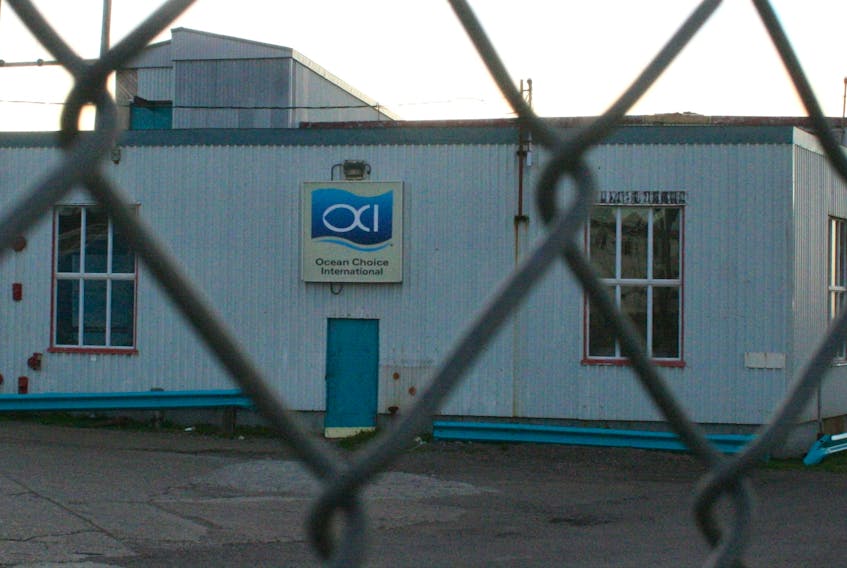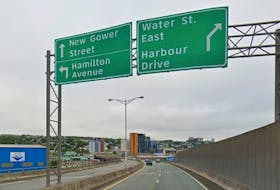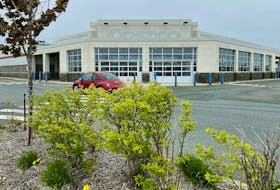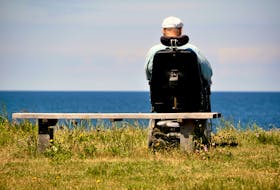ST. JOHN'S, N.L. — It’s been dangerous times for employees at fish plants in the province, according to the Fish, Food and Allied Workers (FFAW-Unifor) union.
“A spat of destructive fires, carbon monoxide leaks and exposures to ammonia gas have left many plants' workers around Newfoundland and Labrador scrambling for their lives,” FFAW-Unifor industrial director Greg Pretty said in a news release on Thursday, May 23.
One incident that emphasizes the critical need for improved Occupational Health and Safety regulations in fish processing occurred at Ocean Choice International’s (OCI) facility in Fortune in January, according to the union, when four workers were taken to hospital due to carbon monoxide poisoning.
All four workers were released from hospital on the same day but one continued to have symptoms into the second day, FFAW-Unifor acknowledged in a previous news release.
FFAW-Unifor alerted Occupational Health and Safety, and officers were sent to the plant. As a result, a stop-work order was placed on a poorly functioning propane forklift releasing excessive exhaust, the union indicated, adding it was determined the facility was also poorly ventilated and did not have a proper carbon monoxide detector.
Nine safety directives were issued to OCI in all, said the union.
“Part of the problem is that there appears to be two tiers of worker safety,” Pretty explained in the May 23 release.
“It seems processing companies enjoy safety margins and regimes that are much less stringent than their urban counterparts. Even modalities of treatment can be different in rural communities where workers are sent back to work almost immediately following a carbon monoxide or gas leak.”
FFAW-Unifor indicated it has been calling on the provincial government to put a safety sector council in place for processing plants for over five years, but employers have refused.
In the release, the union called on the provincial government to conduct a safety blitz on all operating plants this season to ensure workers are safe and fish plant owners are following the province’s laws.
“Coupled with unbridled shellfish asthma and rampant repetitive strain injuries in a number of these plants, along with the recent rash of fires and gas leaks, you’re left with medieval workplaces that are going backward instead of forward with worker safety,” Pretty said.
Inspections
SaltWire Network contacted both ServiceNL and WorkplaceNL for comment on the issues raised by FFAW-Unifor.
In a statement, ServiceNL indicated its Occupational Health and Safety (OHS) division conducts inspections at all workplaces in Newfoundland and Labrador, including fish processing plants.
"Currently there are approximately 60 fish plants operating in the province, many of which operate seasonally. There have been OHS inspections carried out at all fish processing plants in the past five years, and many operations have been inspected on multiple occasions," the statement reads.
"Inspections are carried out to identify hazards and determine if a workplace is in compliance with Occupational Health and Safety Legislation. Inspections may take place on one occasion or multiple occasions, depending on whether issued have been identified. Orders are written when there is noncompliance with the legislation. When orders are written a follow up inspection is carried out to ensure compliance is achieved."
ServiceNL indicated 22 individual fish plants have been inspected since January of this year, and 120 OHS orders have been written in the fish processing sector since then.
WorkplaceNL CEO Dennis Hogan said the organization's five-year workplace injury prevention strategy is an opportunity to help protect workers from workplace hazards.
"WorkplaceNL’s mandate is to provide education and create awareness of occupational health and safety. We work directly with employers and labour groups to improve OHS programs and address safety hazards across many industries, including fish processing," Hogan said in a statement.
"With respect to the fish processing sector in general, we are seeing improvements in safety performance. The lost-time incidence rate in the fish processing sector is 41 per cent lower than it was five years ago.
"We appreciate that both labour and fish processors are passionate about safety in the industry, and will continue to engage all stakeholders in helping to prevent workplace injury and illness."









